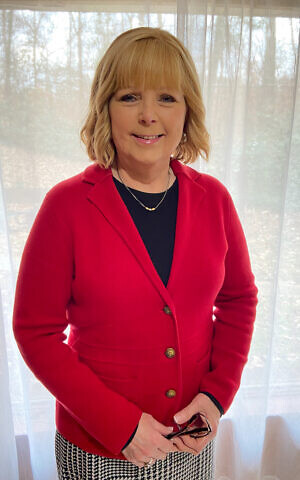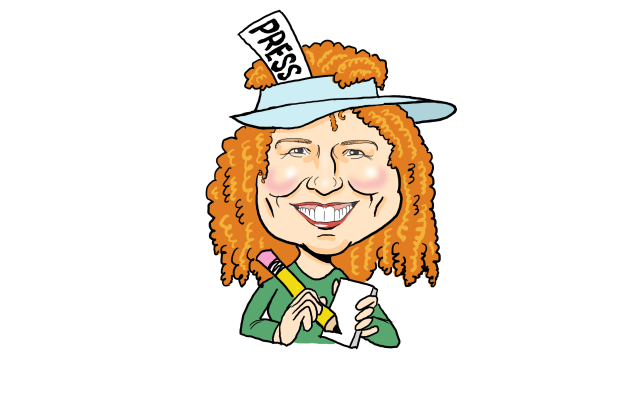Is Honesty Always the Best Policy?
Four Atlantans explain why this age-old question has no easy answer.
Chana Shapiro is an educator, writer, editor and illustrator whose work has appeared in journals, newspapers and magazines. She is a regular contributor to the AJT.
David Goldstein
To lie or not to lie? That is the question!
“No man has a good enough memory to be a successful liar.” (Abraham Lincoln)
The Bible tells us that we should not lie. This is a commandment. We are told not to lie so that there can be trust between people and, in that way, society can function peacefully. Telling the truth helps us trust one another and keeps us from trying to overcome and conceal the lies we tell.

If you always tell the truth, your feelings will be calmer, and you avoid the guilt that you (should) feel when you lie. So, we should not lie.
And yet, are there times when lying is OK? Every one of us has to consider … What about when a woman is asked about her age?
What about when your significant other asks, “How does this outfit look on me?”
What about when you are pulled over for speeding and the officer says, “Do you know how fast you were driving?”
What about authorities coming to arrest someone you are hiding? (Nazis)
What about being forced to convert to save your life? (Crusades)
What about when your child comes home saying, “Am I ugly?” after being bullied?
What about when we really need/want the job?
We all tell “little white lies” to make people feel better, to make ourselves feel better, to avoid confrontation, or to save someone from death or serious injury.
Suzi Tibor
Being honest is meant to help, not harm. In general, that’s the reason I don’t think telling the truth is a good idea. Even if your words are intended for the person’s own good, you never know how the person is going to take it. Sometimes you can skirt around the question and figure out a harmless, subtle way of giving your opinion; however, that can backfire, too.

Most of the time, I prefer a harmless lie that doesn’t end up hurting anyone. If a friend asks me how she looks in a dress that I think is too tight on her, I would not tell her what I really think. I might say something like, “If you like that dress and will enjoy wearing it, that’s what’s important.”
The determining factor is how well I really know and how close I am to the other person. I try to be honest with people in my family (and I’m really only talking about the closest members of my family). I am less comfortable expressing an opinion to a friend because it’s easy to lose friends over something trivial to me but meaningful to them. It’s never worth it. As for close family members, I hope we can be honest with each other all the time!
Ruth Goldstein
To tell the truth honestly sounds like the best policy, but the framing of the truth, the words chosen to position the truth are often not honest.

When others trust that you are honest persuades them that you are telling them the truth and presenting truth to someone else carries a heavy responsibility. Social bias, religious framing and political agendas can block honest dialogue. Telling the truth requires a pause to push aside your personal agenda.
Stepping forward to “tell the truth” should start with a question, “is it really the TRUTH?” Within the pause, be honest with yourself, consider how to present the facts and be attentive to their impact on the listener. Speaking sincere, fair, truthful words is honestly the hardest thing you will do today.
Mark Fisher
One of my adult children asked me, “Did you attend synagogue on Shabbat?” I knew what the next question would be after I replied in the affirmative. “Were you wearing a mask?”

The pandemic seems to be winding down, and what’s so bad if I joined the non-masked individuals and told a small lie to my daughter? Her synagogue in another state still had the mask requirement, and she believes that I should do the same here, even though going maskless is now acceptable. To tell a lie to my daughter was not a possibility for me. Unfortunately, lying can become a habit. It is believed that performing one mitzvah leads to another, and one sin — in this case a lie — will lead to another.
But are all lies the same? In Judaism, one is supposed to distance oneself from falsehood. What about a white lie? There are times when that is advisable, especially when one could harm or hurt another person. Sometimes a lie can bring about peace between individuals. Perhaps a lie can protect someone from embarrassment.
Therefore, one needs to think carefully before speaking the truth.
When editing a client’s resume that needs help, I ask if I should be polite and non-judgmental or be totally honest. The reply is almost always, “Please be honest.” In this case, my honesty pays off and the resume improves.




comments